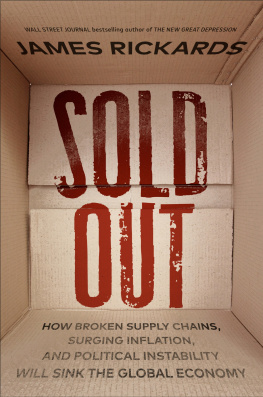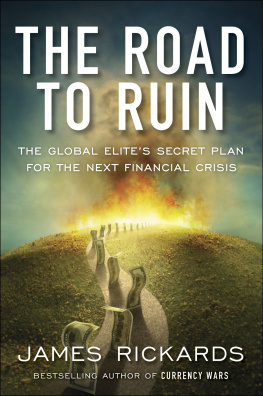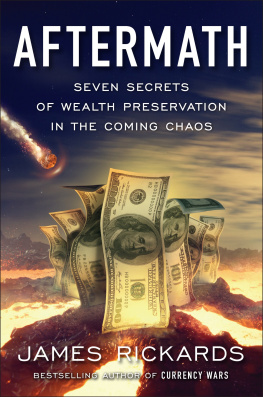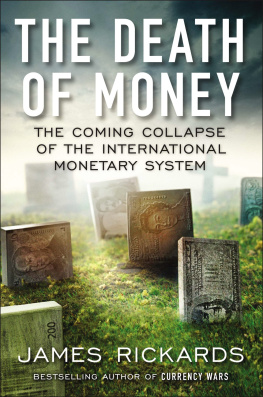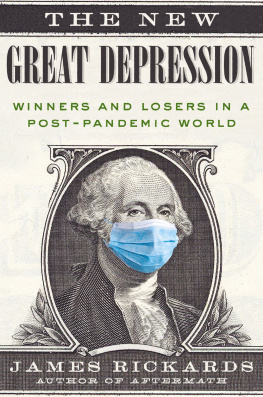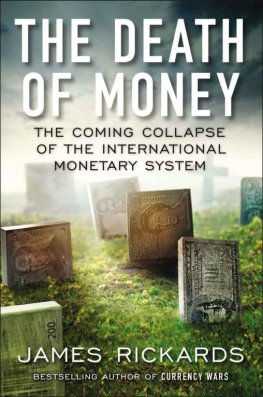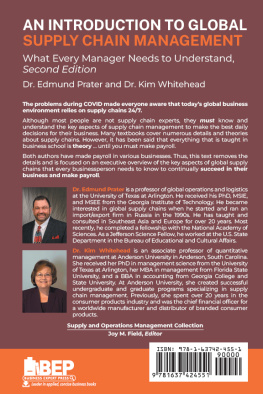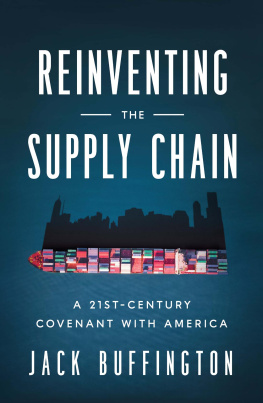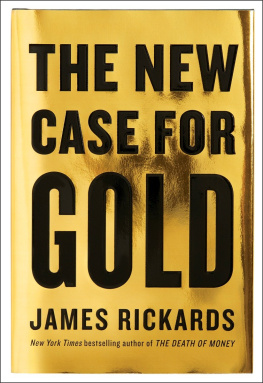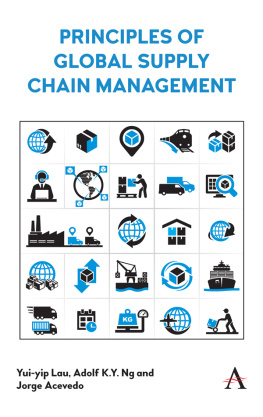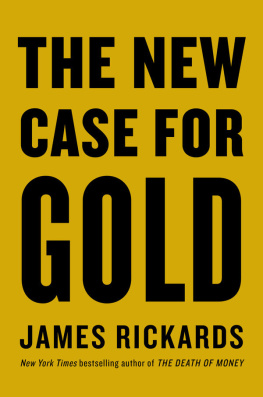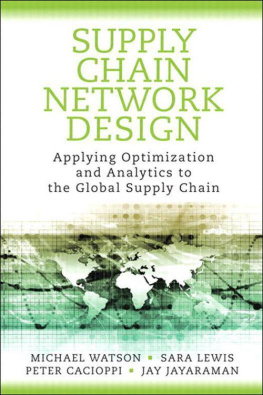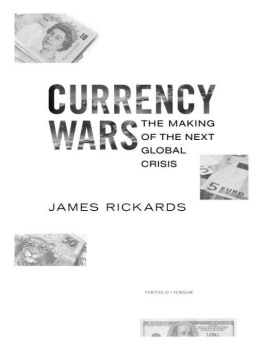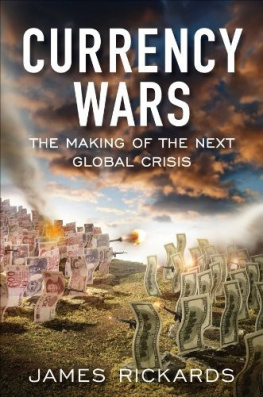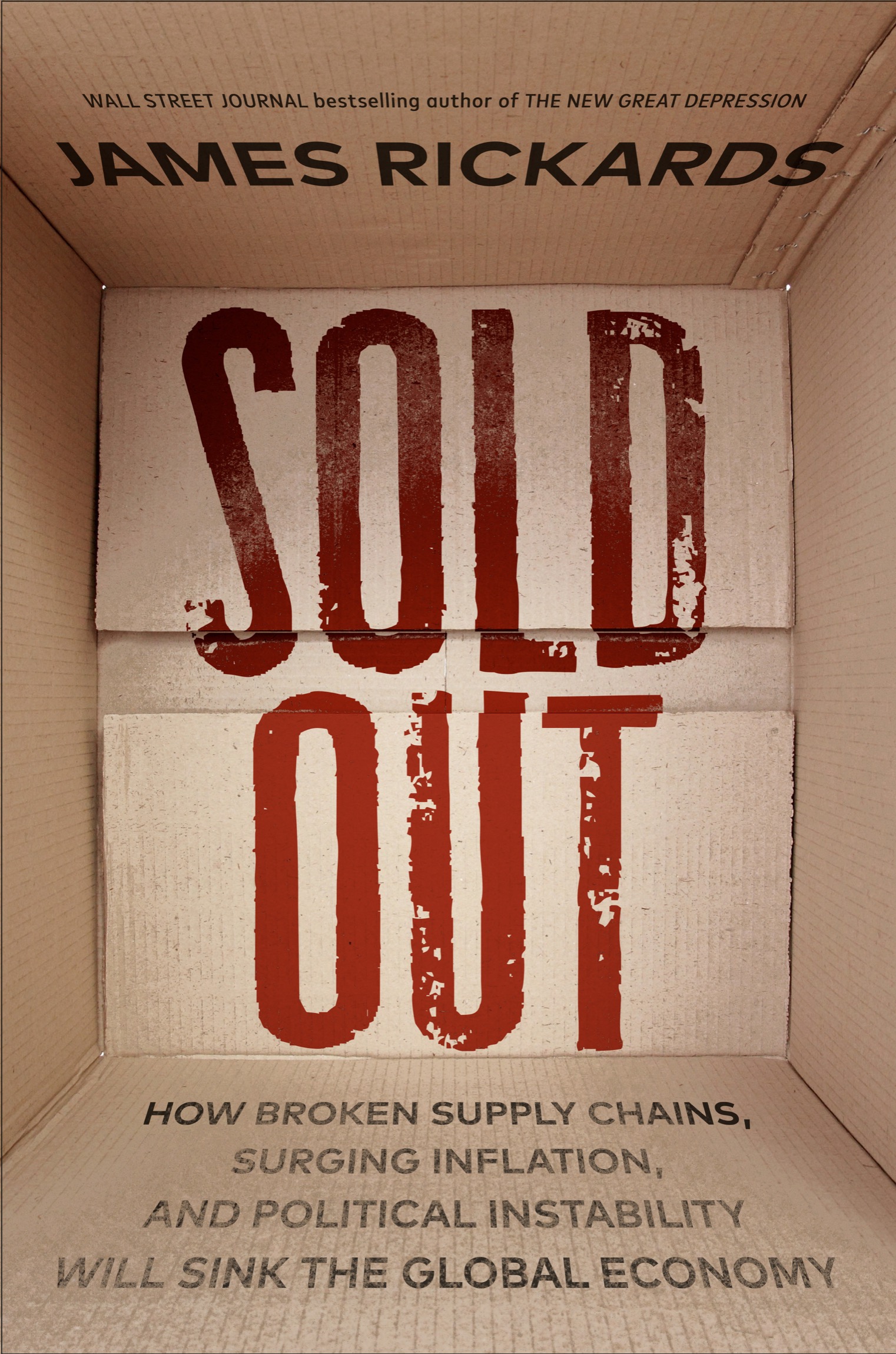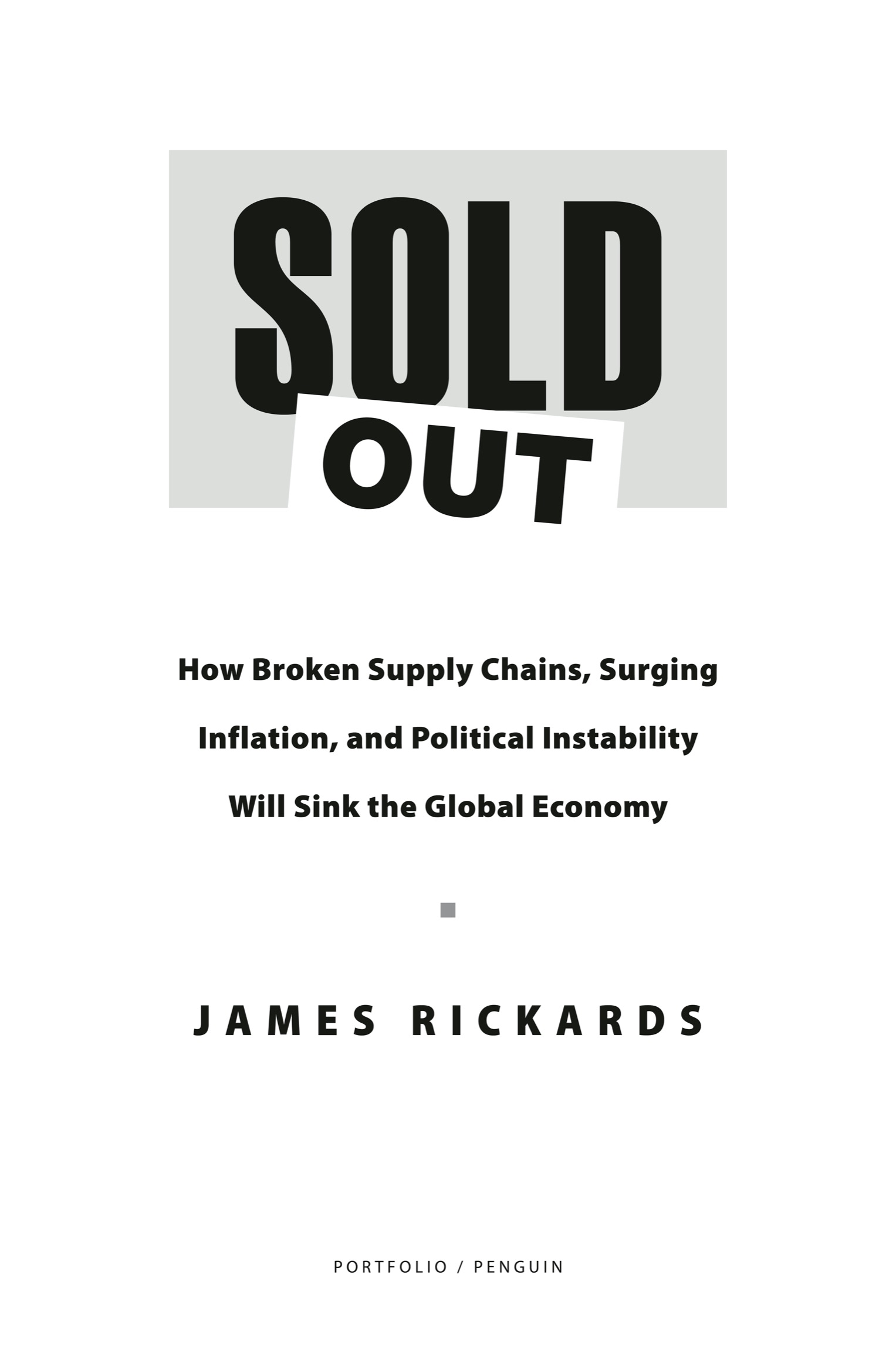James Rickards - Sold Out: How Broken Supply Chains, Surging Inflation, and Political Instability Will Sink the Global Economy
Here you can read online James Rickards - Sold Out: How Broken Supply Chains, Surging Inflation, and Political Instability Will Sink the Global Economy full text of the book (entire story) in english for free. Download pdf and epub, get meaning, cover and reviews about this ebook. year: 2022, publisher: Penguin Publishing Group, genre: Romance novel. Description of the work, (preface) as well as reviews are available. Best literature library LitArk.com created for fans of good reading and offers a wide selection of genres:
Romance novel
Science fiction
Adventure
Detective
Science
History
Home and family
Prose
Art
Politics
Computer
Non-fiction
Religion
Business
Children
Humor
Choose a favorite category and find really read worthwhile books. Enjoy immersion in the world of imagination, feel the emotions of the characters or learn something new for yourself, make an fascinating discovery.
- Book:Sold Out: How Broken Supply Chains, Surging Inflation, and Political Instability Will Sink the Global Economy
- Author:
- Publisher:Penguin Publishing Group
- Genre:
- Year:2022
- Rating:5 / 5
- Favourites:Add to favourites
- Your mark:
Sold Out: How Broken Supply Chains, Surging Inflation, and Political Instability Will Sink the Global Economy: summary, description and annotation
We offer to read an annotation, description, summary or preface (depends on what the author of the book "Sold Out: How Broken Supply Chains, Surging Inflation, and Political Instability Will Sink the Global Economy" wrote himself). If you haven't found the necessary information about the book — write in the comments, we will try to find it.
The supply chain crisis is coming to a head. Today, your favorite products are missing from store shelves, caught in supply chain limbo somewhere in the Pacific Ocean. But what does this supply chain disruption look like six months, or even three years, from now? While we hope that post-pandemic recovery will absolve these issues, the reality is that digital currency, meme stonks, and social media cant solve the age-old problem of producing and moving physical goods across oceans and continents. According to Jim Rickards, consumer frustration is only the tip of a very large, menacing iceberg that threatens global economic collapse.
In Sold Out, Rickards shares his predictions for our post-pandemic future and outlines how consumers and business owners can get ahead of the collapse. Youll learn how energy shortages in China fueled by the trade war with Australia are disrupting the steel market and forcing entire factories to shut down. Youll also learn how rising inflation will ultimately lead to deflation in a few short years as consumer spending eventually tanks due to higher taxes, excessive debt, and increased layoffs and why such economic conditions will closely resemble the 1930s. Finally, Rickards will look at the future of money, including the erasure of the American dollar itself.
Our global economy faces unprecedented challenges in the next few months. But whether we sink or swim depends on how prepared we are and what we do now to thwart the coming collapse.
James Rickards: author's other books
Who wrote Sold Out: How Broken Supply Chains, Surging Inflation, and Political Instability Will Sink the Global Economy? Find out the surname, the name of the author of the book and a list of all author's works by series.

